Brookes Publishing Co.

Recent Publications from Brookes Publishing Co.
www.brookespublishing.com
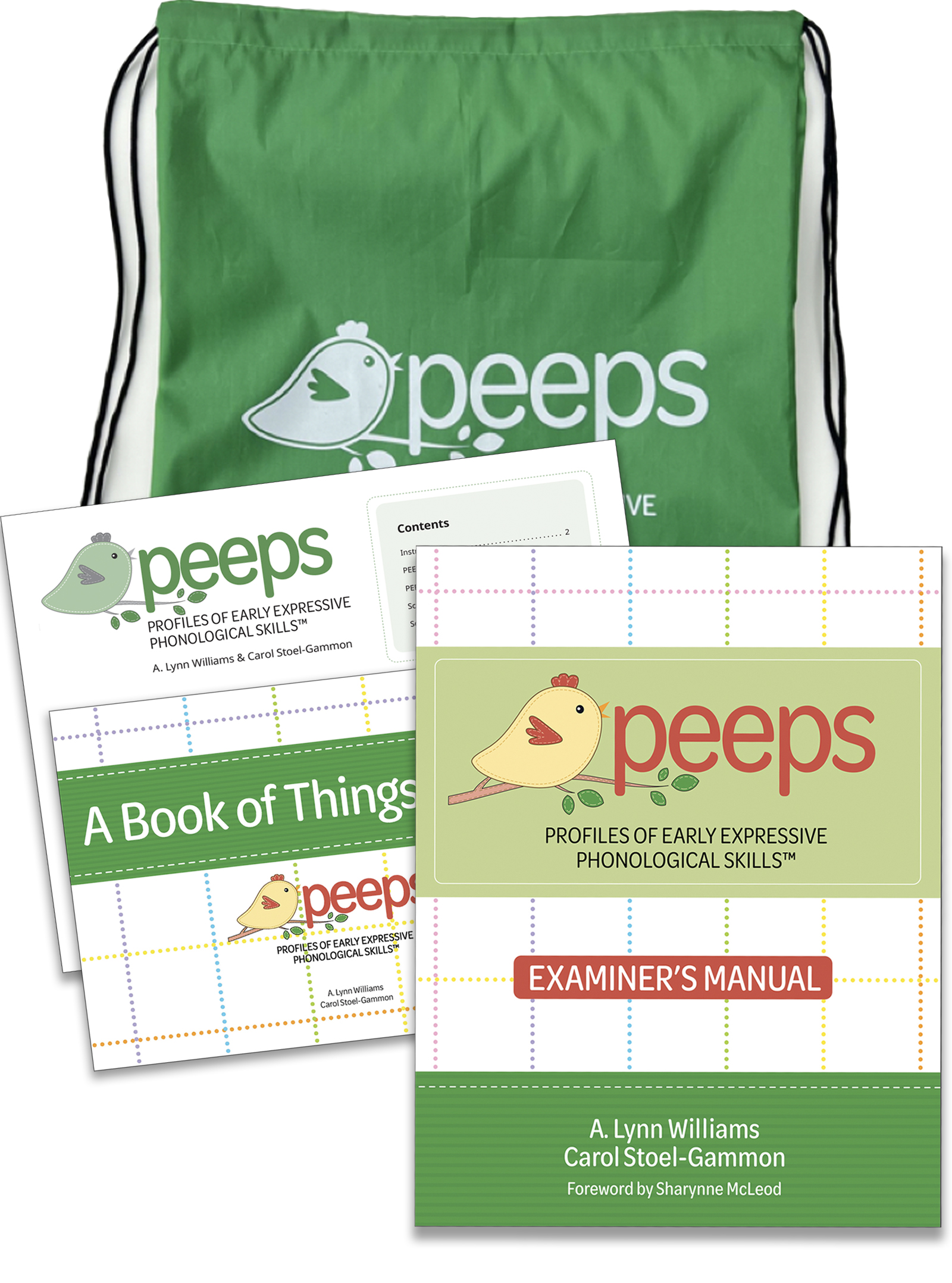
COMING SOON!
| PEEPS™ Assessment Kit: Profiles of Early Expressive Phological Skills A. Lynn Williams, Ph.D. & Carol Stoel-Gammon, Ph.D. Phonological development is linked with a child’s later success with language and literacy, but tests of early phonological skills are often not sensitive enough for the youngest children. That’s why clinicians need PEEPS™, a comprehensive assessment of early phonological skills developed specifically for toddlers 18–36 months. Created by leading experts in early phonological development and speech sound disorders, PEEPS helps speech-language pathologists detect speech and language delays early, so children can receive the intervention and support they need to be effective communicators on track for academic achievement. To conduct either the full PEEPS or the screener, the clinician will:
PEEPS is easy to administer. The Examiner’s Manual guides clinicians step by step through the process, and the kit includes access to a helpful video in which the authors clearly demonstrate how to deliver PEEPS. The PEEPS Kit includes:
|
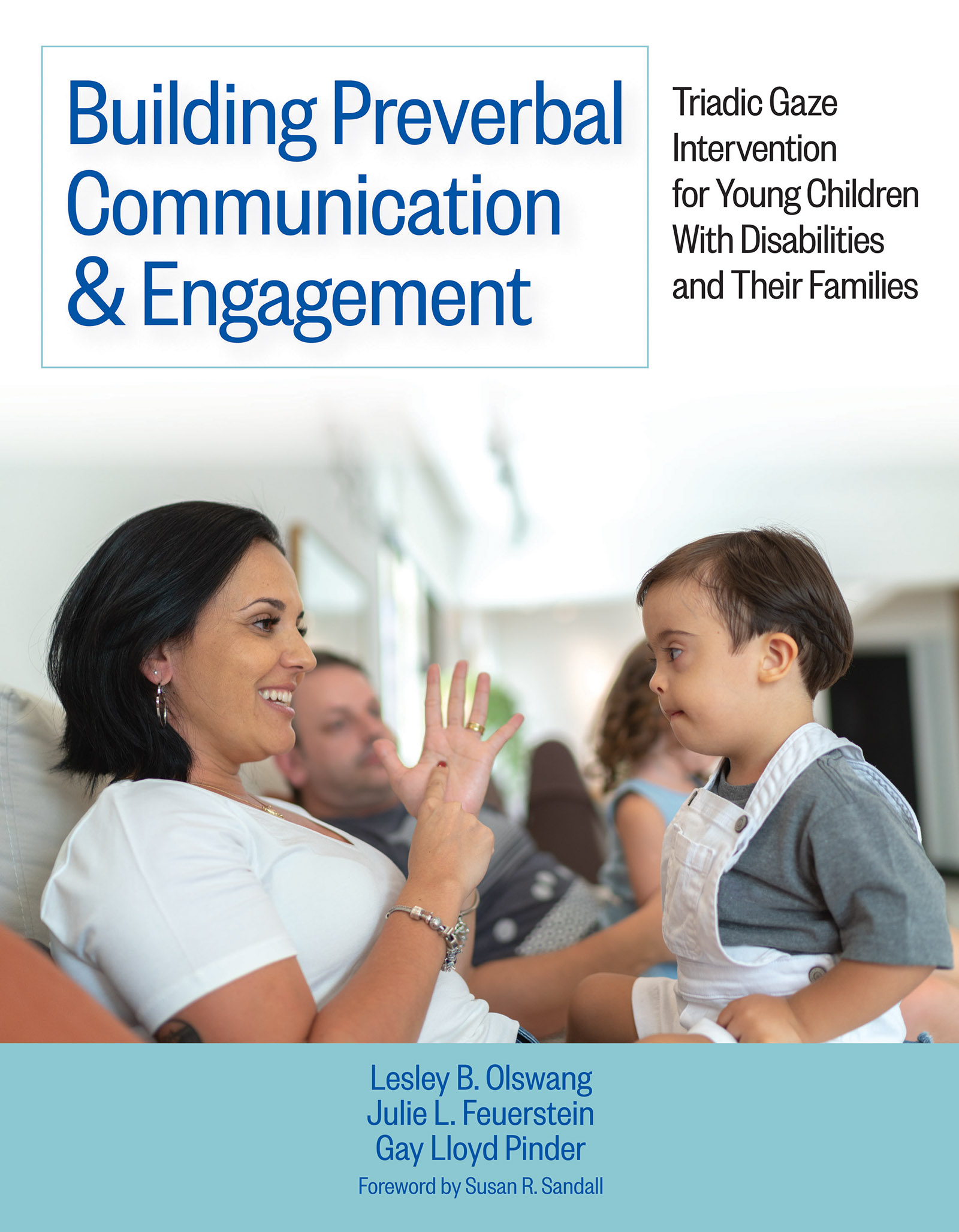
NEW!
By Lesley B. Olswang, Ph.D., CCC-SLP, Julie L. Feuerstein, Ph.D., CCC-SLP, & Gay Lloyd Pinder, Ph.D., CCC-SLP The product of more than three decades of research and clinical work, this accessible guidebook will help professionals harness the power of Triadic Gaze Intervention (TGI), an evidence-based strategy that supports the development of early communication behaviors—gaze, gestures, and vocalizations—in young children with disabilities. Through a straightforward protocol, practitioners will learn powerful techniques for helping caregivers engage young children during everyday routines and build their preverbal communication skills. In-depth practical guidance—enhanced with tip sheets, case examples, photos, and demonstration videos—make the protocol easy to learn and put into action with families and children. |
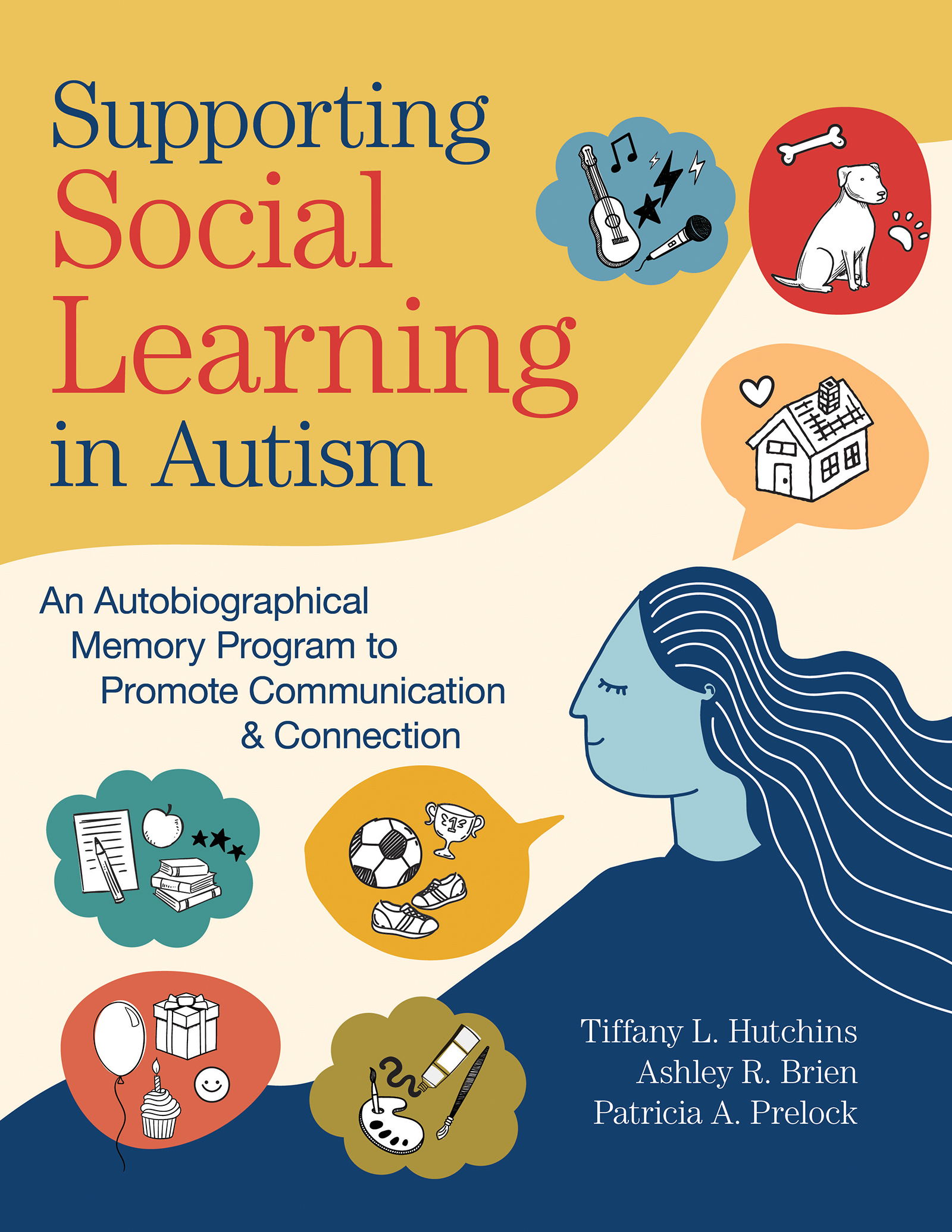
NEW!
By Tiffany L. Hutchins, Ph.D., Ashley R. Brien, Ph.D., CCC-SLP, & Patricia A. Prelock, Ph.D., CCC-SLP, BCS-CL A natural, strengths-based approach to autism intervention, this unique program is about promoting authentic connections by facilitating memory—not encouraging a specific set of behaviors or changing autistic habits of cognition. Ideal for speech-language pathologists and other practitioners, this book offers detailed guidance on how to assess ABM needs and implement activities that help autistic individuals encode and retrieve memories that aid in social learning. Professionals will get step-by-step instructions on using adaptable, person-centered techniques such as elaborative reminiscing, memory making activities, episodic memory draw-talks, and life stories. |
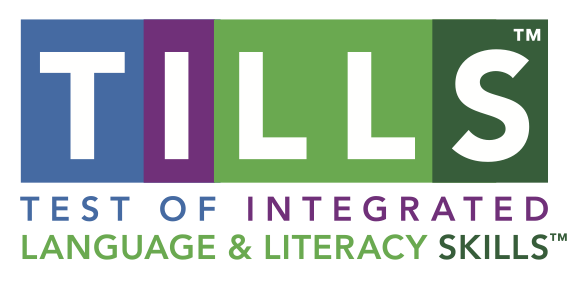
| TILLS™: Test of Integrated Language & Literacy Skills™ Nickola W. Nelson, Ph.D., Nancy Helm-Estabrooks, Sc.D., Gillian Hotz, Ph.D., and Elena Plante, Ph.D. The Test of Integrated Language & Literacy Skills™ (TILLS™) is the groundbreaking assessment professionals need to test listening, speaking, reading, and writing skills in students ages 6—18, and to assess the role of memory in how students perform. Reliable, valid, and comprehensive, TILLS will help you streamline assessment, monitor progress, and reach your ultimate goal: improving students' communication skills so they can succeed in school. Why use TILLS? TILLS is the only test that assesses both spoken AND written language and shows how these skills relate to each other. You'll get a meaningful profile of skills for each learner, so you can be sure you understand a student's strengths and needs and aren't overlooking something crucial. Unlike most other tests, TILLS also provides diagnostic accuracy in "age bands" meaningful to the development of language and literacy skills, so you'll have the evidence base you need to determine if test scores reflect typical or impaired performance. And if you're an experienced clinician, you can finish TILLS in just 90 minutes or less—which means you'll spend less time testing and more time helping students and planning interventions. This Examiner's Kit gives you everything you need to get started with TILLS: an Examiner's Manual, Stimulus Book, 25 Record Forms, Technical Manual, Quick Start Guide, 1 Practice Workbook, 25 Student Response Forms, tablet of Student Rating Scales, and a USB drive of audio and text files. |
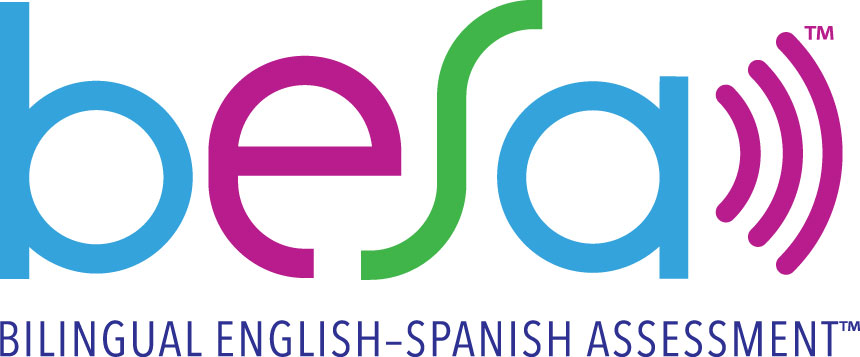
| Bilingual English-Spanish Assessment (BESA) Elizabeth D. Peña, Ph.D., CCC-SLP, Vera F. Gutiérrez-Clellen, Ph.D., CCC-SLP, Aquiles Iglesias, Ph.D., CCC-SLP, Brian A. Goldstein, Ph.D., CCC-SLP, & Lisa M. Bedore, Ph.D., CCC-SLP When a young bilingual child experiences language difficulties, it can be hard to tell if those challenges are due to a disorder or just limited exposure to the English language. That's a critical distinction—because while limited language exposure will fix itself over time, a language impairment is a clinical issue that will cause the child difficulties in school without timely and effective intervention. Now there's a valid, reliable assessment that specifically responds to the needs of young Spanish-English bilingual children. For use with children ages 4 through 6 years who have varying degrees of bilingualism, the Bilingual English-Spanish Assessment (BESA) was developed to:
BESA Benefits
|
NEW!
|
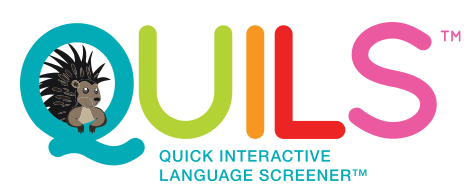
| Quick Interactive Language Screener™ (QUILS™) Roberta Michnick Golinkoff, Ph.D., Jill De Villiers, Ph.D., Kathy Hirsh-Pasek, Ph.D., Aquiles Iglesias, Ph.D., CCC-SLP, & Mary Sweig Wilson, Ph.D., CCC-SLP Early identification is the first step to helping young children with language delays get on track for reading proficiency—and school success. But how do you find the children who might need extra support? It’s simple with the Quick Interactive Language Screener™ (QUILS™) a web-based tool that helps you evaluate the language skills of children ages 3 through 5 years—and make sure their progress is appropriate for their age group.
|
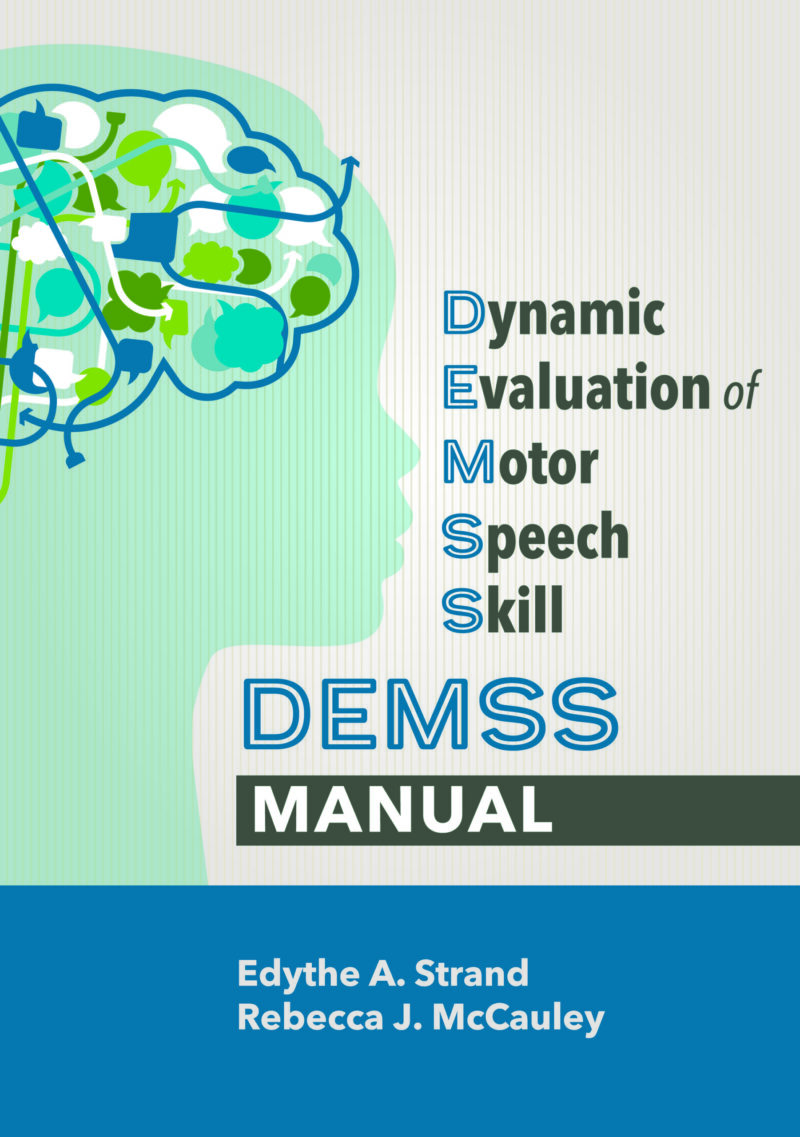
Dynamic Evaluation of Motor Speech Skill (DEMSS) Manual Edythe A. Strand, Ph.D., CCC-SLP, & Rebecca J. McCauley, Ph.D., CCC-SLP When a young child has a severe speech sound disorder— especially one severe enough to affect the child's intelligibility—it's critical to determine the degree to which motor speech impairment contributes to the disorder. Now there's a dynamic, criterion-referenced assessment that helps SLPs do just that. Use the Dynamic Evaluation of Motor Speech Skill (DEMSS) to diagnose severe speech sound disorders in children 3 and older, estimate the severity of a child's disorder, and inform the development of treatment goals. Purchase the DEMSS manual and you’ll have everything you need, including a keycode that unlocks access to a video tutorial and free unlimited DEMSS forms, downloadable online. |
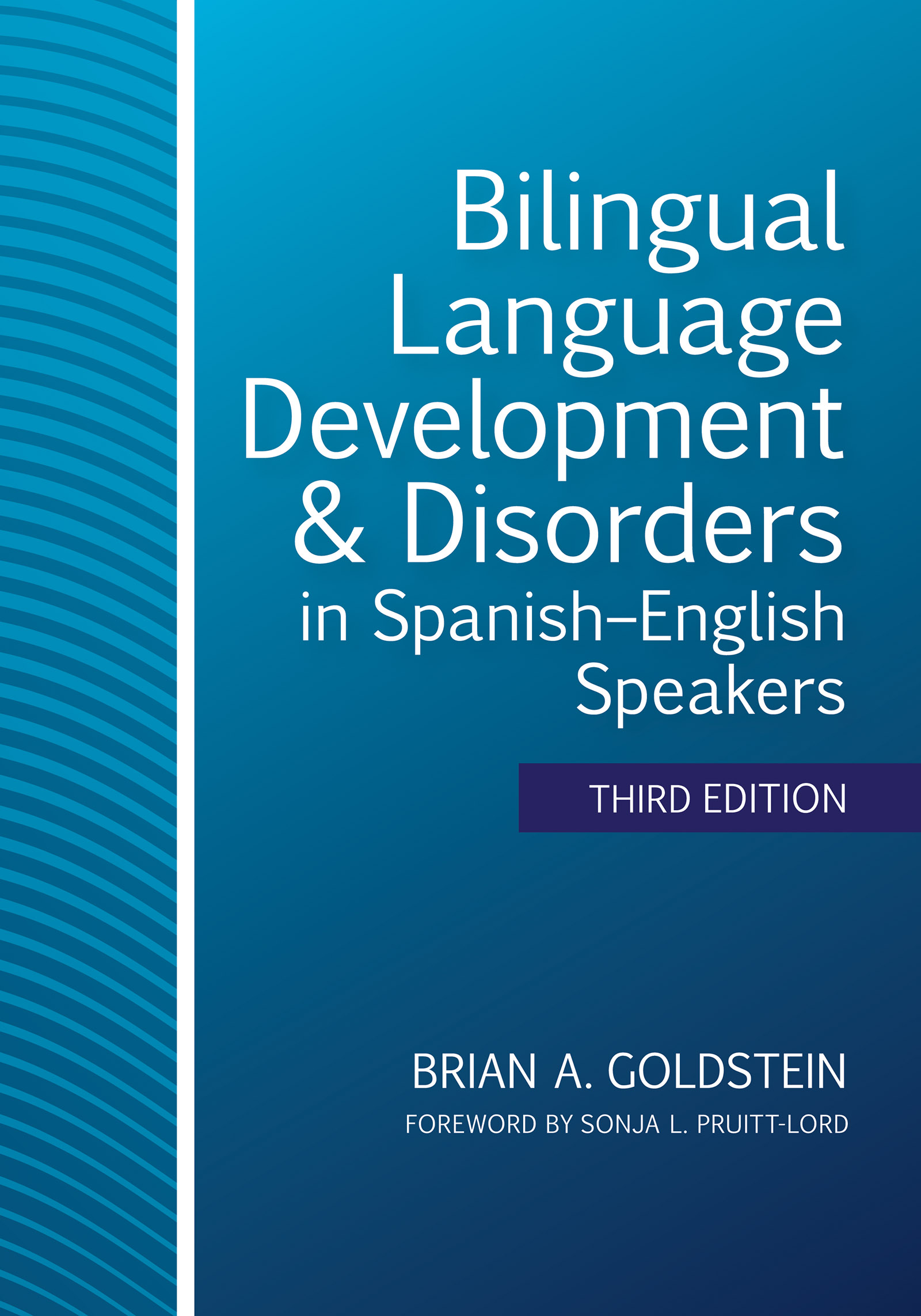
New!
| Bilingual Language Development & Disorders in Spanish-English Speakers, Third Edition Brian A. Goldstein, Ph.D., CCC-SLP Aligned with current best practices and updated with the latest research and new chapters on critical topics, this book prepares SLPs for practice with cutting-edge information on language development and disorders of Spanish–English bilingual children. More than 25 leading researchers compile the high-level knowledge SLPs need to understand the complexity of language development in bilingual children, distinguish language differences from disorders accurately, and conduct effective assessment and intervention. An essential graduate text that will also be a trusted reference for practicing professionals, this third edition gives current and future SLPs a broad, deep, and nuanced understanding of communication development and disorders in Spanish–English bilingual children. |
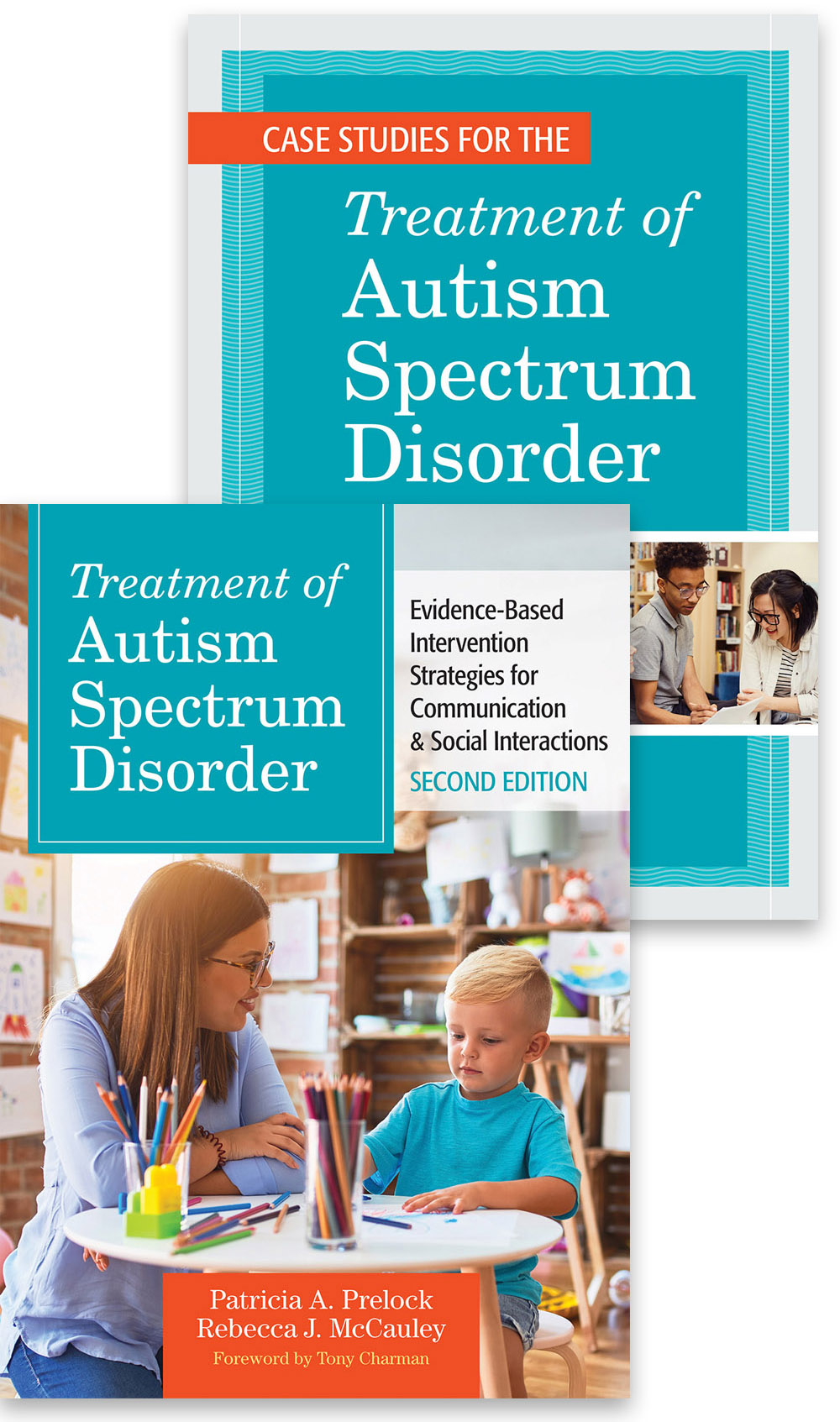
NEW!
Treatment of Autism Spectrum Disorder Bundle Patricia A. Prelock, Ph.D., CCC-SLP, BCS-CL, & Rebecca J. McCauley, Ph.D., CCC-SLP Treatment of Autism Spectrum Disorder: Evidence-Based Intervention Strategies for Communication & Social Interactions, 2nd Edition: Readers will get a thorough introduction to 14 evidence-based interventions, complete with key details on each intervention’s theoretical and empirical basis, components, practical requirements, applications for both children and adults, and considerations for children from diverse cultural and linguistic backgrounds. Twelve video clips (available for streaming) illustrate the interventions in action, and highly relevant learning activities prepare SLPs and other practitioners to make sound decisions in scenarios they’re likely to encounter in the field. Case Studies for the Treatment of Autism Spectrum Disorder: Through 14 realistic cases, readers will explore the types of clinical challenges they may face, see what the experts would recommend, and get exercises to help them practice their decision-making skills. |
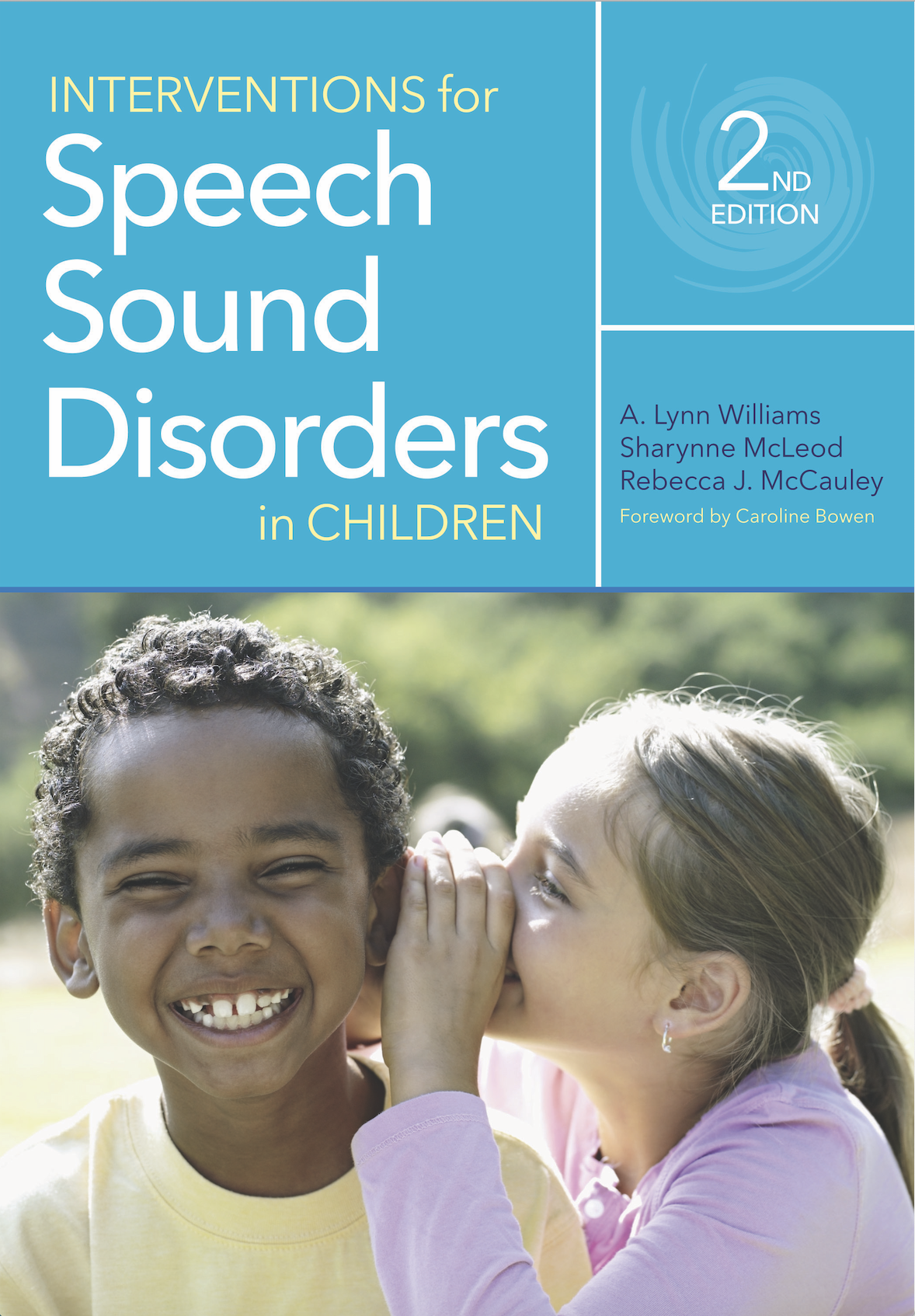
NEW!
Interventions for Speech Sound Disorders in Children, 2nd Edition Lynn Williams, Ph.D., Sharynne McLeod, Ph.D., & Rebecca J. McCauley, Ph.D., CCC-SLP An essential building block of every SLP’s professional preparation, the second edition of this bestselling text is a comprehensive critical analysis of 21 interventions for speech sound disorders (SSD) in children. Bringing together a powerhouse team of international experts, this new edition has been enhanced with current research, new interventions, more guidance on selecting interventions, and updated video clips. For each intervention, readers will get a clear explanation of its evidence base, plus guidance on implementing the approach, monitoring progress, and using the intervention with children from culturally and linguistically diverse backgrounds. |
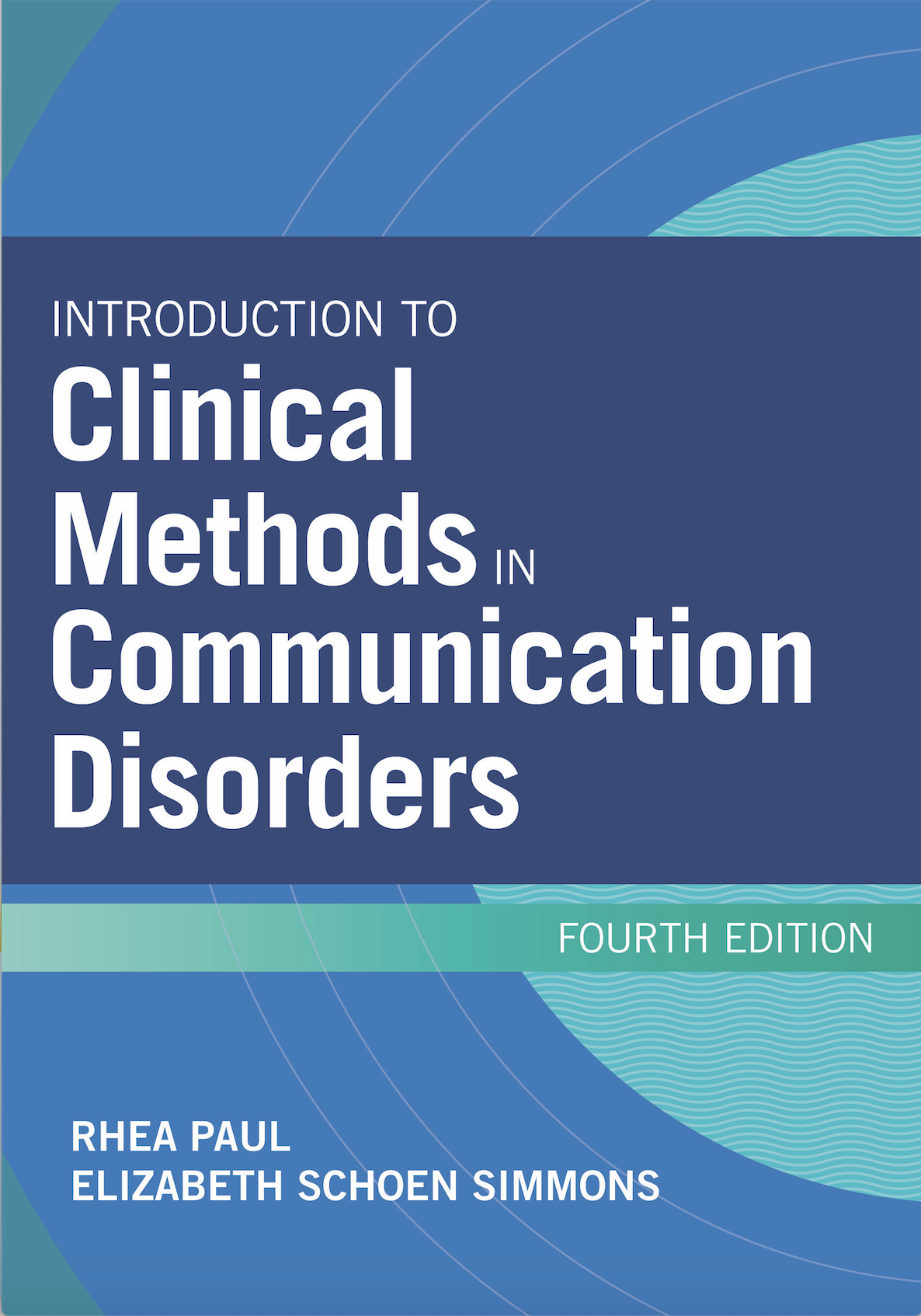
Introduction to Clinical Methods in Communication Disorders, 4th Edition Rhea Paul, Ph.D., CCC-SLP, & Elizabeth Schoen Simmons, M.S., CCC-SLP Fully updated based on the 2020 ASHA standards and recent AAA standards, the new edition of this bestseller is the core textbook for all students in clinical methods courses—and a reliable reference for practicing SLPs and audiologists. WHAT'S NEW:
|
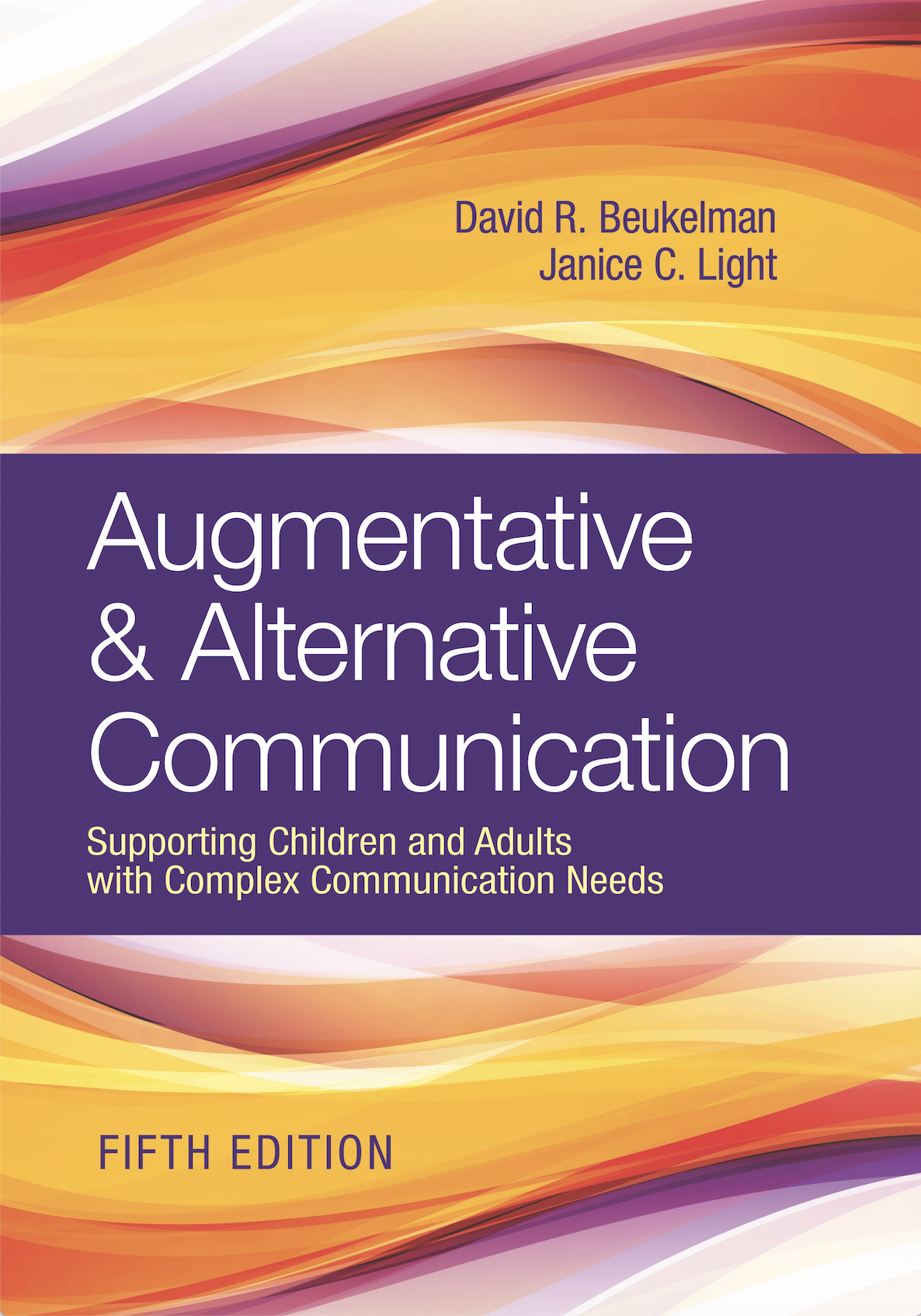
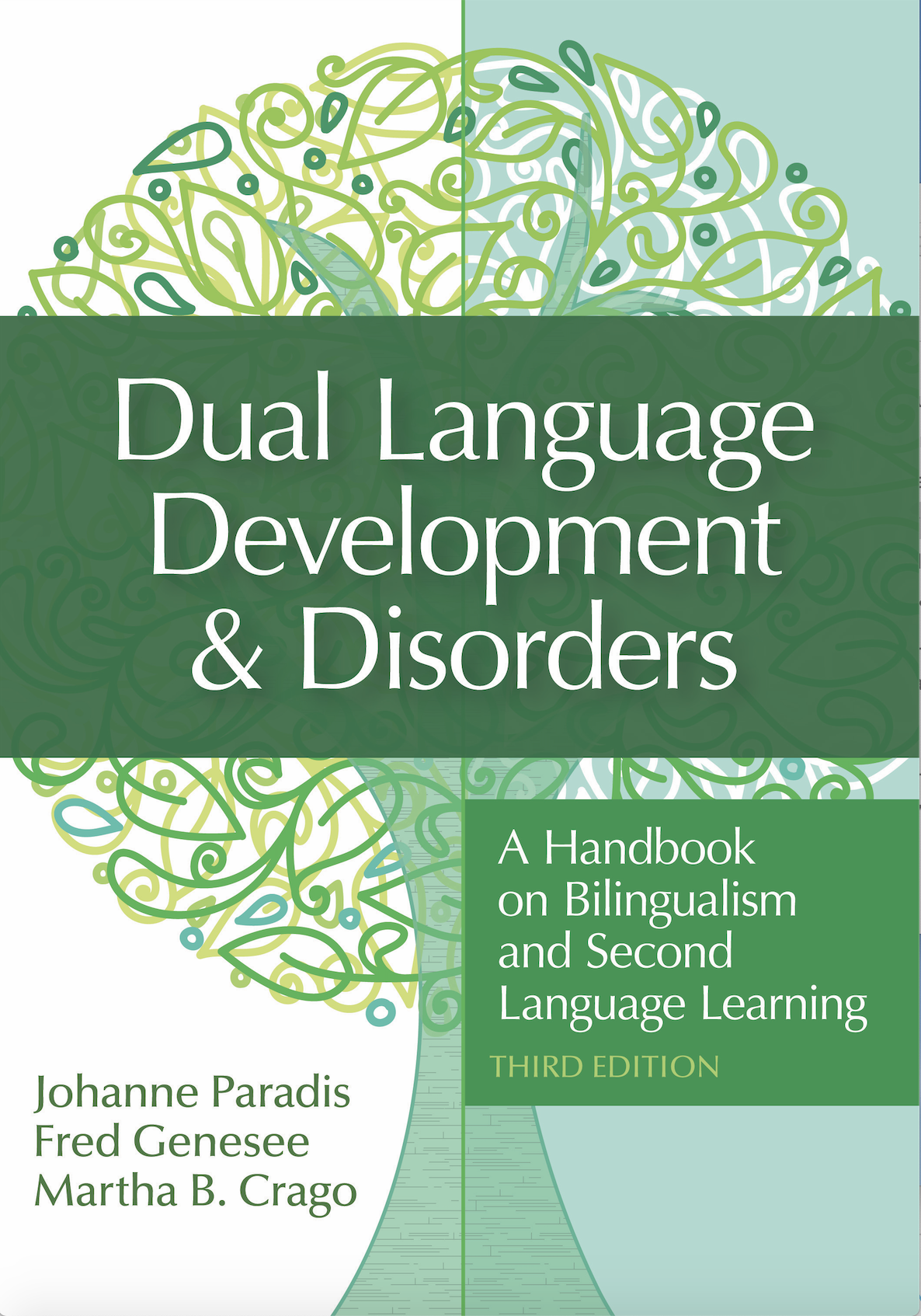
NEW!
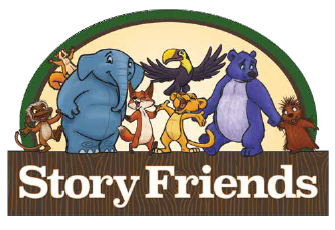
| Story Friends™: An Early Literacy Intervention for Improving Oral Language Howard Goldstein, Ph.D., CCC-SLP, & Elizabeth Spencer Kelley, Ph.D., CCC-SLP Fun, engaging, and effective, Story Friends™ is the first research-based Tier 2 language intervention program for 4- to 6-year-old children at risk for reading difficulties. Through interactive animal-themed storybooks and lively, engaging audio recordings, Story Friends effectively boosts oral language and vocabulary development—two of the most important predictors of later reading success. With interactive storybook components and appealing narration from Wanda the Word Wolf, the program hooks and holds young attention spans. And because Story Friends is a natural fit with any existing classroom schedule or curriculum, it’s easier than ever to deliver interventions in the critical early years of school. |
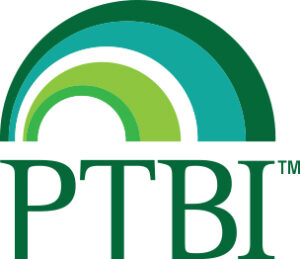
| Pediatric Test of Brain Injury™ (PTBI™) Gillian Hotz, Ph.D., Nancy Helm-Estabrooks, Sc.D., Nickola Wolf Nelson, Ph.D., & Elena Plante, Ph.D. The first criterion-referenced, standardized test that assesses cognitive and academic skills after pediatric brain injury, PTBI™ is the tool every SLP needs to develop effective supports for children ages 6-16 and get them ready for a successful return to the classroom. The complete PTBI™ includes an Examiner’s Manual with comprehensive guidelines and technical data; a Stimulus Book with all the visual stimuli needed to conduct the test; and Test Forms for recording information about the child’s performance and scoring PTBI™. |
